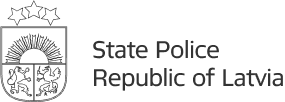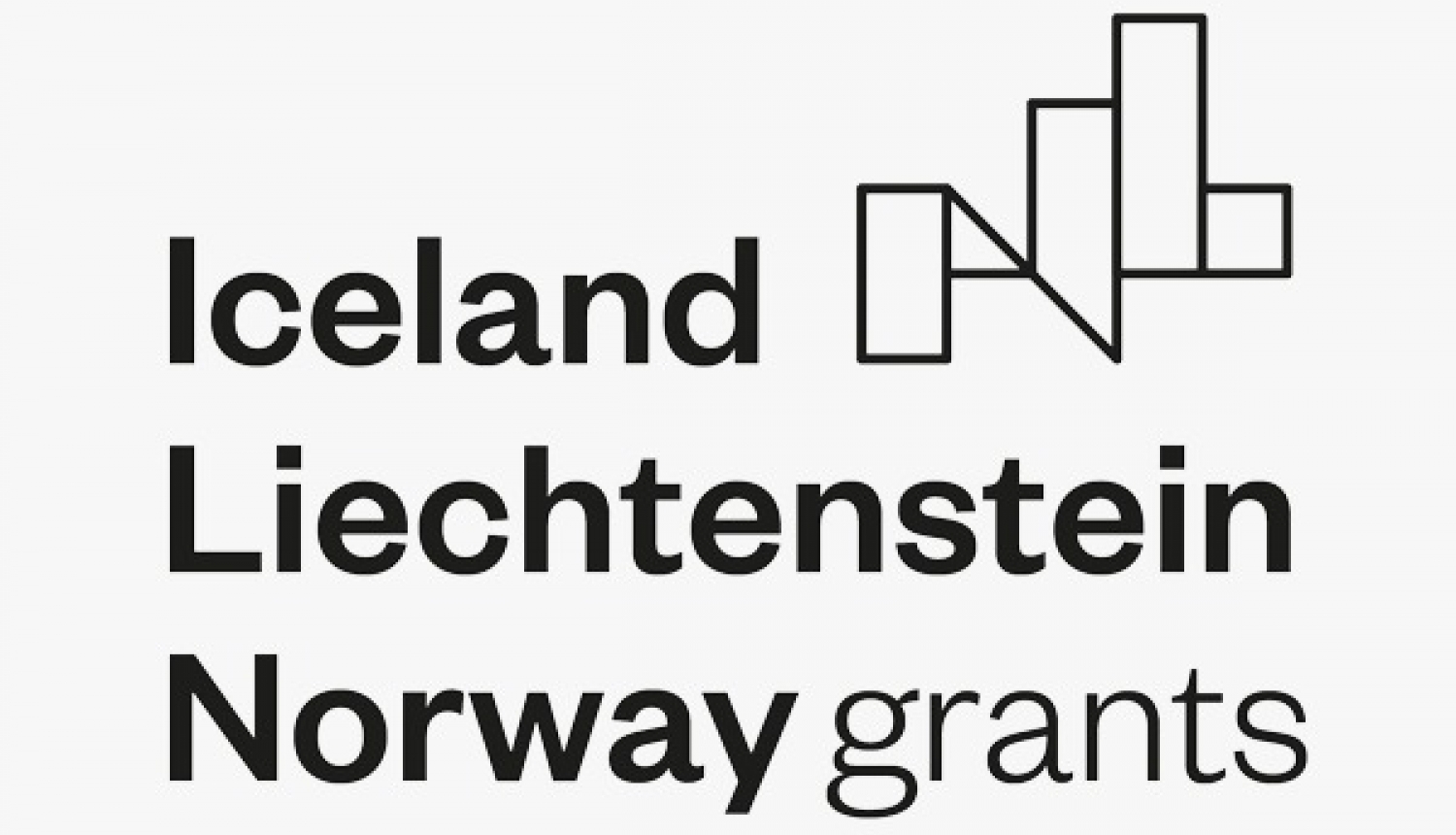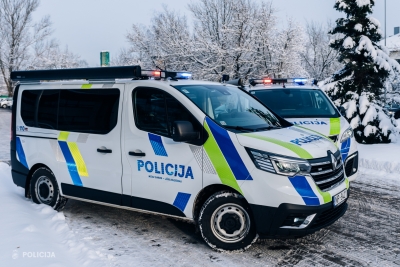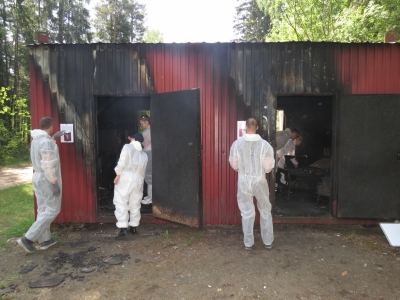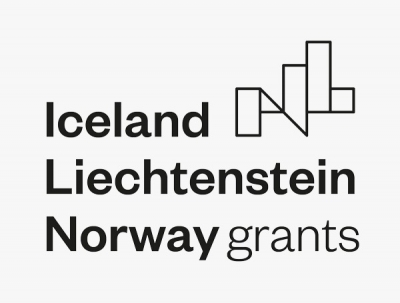In order to ensure high-quality judicial expertise, it is crucial to provide modern, technologically advanced equipment and appropriately qualified personnel. Considering the requirements of the Institute of Judicial Expertise reform, by merging the Expertise Bureau of the Criminalistics Department of the Main Criminal Police Administration of the State Police with the State Forensic Science Bureau, it is essential to strengthen the technical capacity and expert competence of these institutions and the State Forensic Medical Examination Centre to an equivalent level. This would guarantee the ability to conduct sequential examinations of objects, as well as ensure the examination of traces and objects using non-destructive methods primarily, enabling the utilization of subsequent techniques.
The project "Strengthening of the capacity of forensic system and inspection of the site of the event" will make a significant contribution to the technical capacity and expert competence of judicial expertise institutions, which in turn will positively impact the overall term reduction of examinations conducted within a single case and enhance the support of criminalistics specialists at crime scenes. The project will serve as a pivotal platform for the reform of the judicial expertise institute in Latvia, creating an opportunity to observe, familiarize, and evaluate the evidence movement process from the crime scene to the examination: evidence (traces) discovery, fixation, retrieval, process traceability, involvement of individuals, and their responsibilities in organizing various types of crime scene examinations (chain of custody).
|
INFORMATON ABOUT THE PROJECT No. EEZ/TM/2022/7 “Strengthening of the capacity of forensic system and inspection of the site of the event” |
|
|
Project aim |
Enhance the effectiveness of crime scene examination specialists and judicial experts, introducing modern technologies into practice, thus advancing new expertise and research methods. Foster collaboration among judicial expertise institutions throughout the process, from crime scene examination to product utilization expertise, culminating in the presentation of evidence in court.
Through this project, an initial platform will be established for the transformation of the Judicial Expertise Institute in Latvia, ultimately enhancing the capacity of law enforcement agencies. As a result, the support of highly qualified experts will ensure the quality and appropriate timelines of criminal case investigation and prosecution.
|
|
Main activities
|
Improvement of Technical Capacity (Renewal of the Fleet of the Criminalistics Department of the Main Criminal Police Administration of the State Police, Acquisition of Special Equipment for Crime Trace Fixation) Enhancement of Professional Capacity and Knowledge in the Field of Crime Investigation and Expertise by organizing and participating in seminars, practical training sessions, and experience exchange trips.
|
|
Co-operation Partners |
Leading Partner - Ministry of Justice of the Republic of Latvia Norwegian National Criminal Investigation Service State Centre for Forensic Medical Examination State Forensic Science Bureau State Police
|
|
Finances |
The total financing of the project is EUR 2 680 000 Funding of the State Police is EUR 908 901
|
|
More information |
|
Project news:
State Police experts are enhancing their skills in examining arson crime scenes and fixing footprints.
Within the framework of the European Economic Area Financial Instrument for the period 2014-2021, Program "International Police Cooperation and Crime Prevention," project No. EEA/Norway Grants/TM/2022/7, titled "Strengthening of the capacity of forensic system and inspection of the site of the event" practical training sessions were conducted from May 15th to May 25th to enhance professional skills in examining arson crime scenes and fixing footprints, marking the conclusion of this project activity.
During this spring, 29 State Police forensic experts had the opportunity to visit the Lithuanian Fire Investigation Center in Vilnius. In two four-day practical sessions, skills were enhanced in examining arson crime scenes and fixing footprints. The teaching staff of the Lithuanian Fire School shared their experience and theoretical knowledge about the flammability and fire resistance of various materials, as well as the physical and chemical properties of extinguishing materials. The most significant benefit, as assessed by the State Police forensic experts, was the opportunity to immediately put all the theoretically acquired knowledge into practice.
In the theoretical training segment, Lithuanian fire experts shared their experience regarding the actual progress and conclusions of investigating real crimes: how the color of metal changes during a fire, the consequences of improperly installed heating devices, and other practical knowledge useful for everyday work.
In specially built stands, it was possible to observe how fire safety, fire resistance and changes in different temperatures of various materials are checked.
During the training, experts of the State Police were also introduced to the daily life of their Lithuanian colleagues at the Fire Research Center, where it was possible to take a closer look at the laboratory equipment and equipment, as well as to learn more about the research methods used to study the objects seized at the scene.
In one of the practical tasks, experts from household things had to create an object of origin of fire with a time delay. During this task, the experts were able to clearly find out in what time the ignited object causes ignition in the surrounding objects, thus creating an understanding of the basic principles of this process and the state of the materials after combustion.
In one of the practical parts, a staged inspection of the scene of the fire took place in four metal containers, in which various household items - furniture, stoves, computers, various devices, wire connections, tables and beds - were placed before the fire - created close conditions to the real scene.
After the artificially created fire, during the inspection it was necessary to draw conclusions and put forward versions about the possible place and nature of the fire, the conditions affecting it and the peculiarities of its spread. Each version must be based on removable and fixable items and conditions. Each scene had its own fable describing the circumstances associated with the fire. To make the situation more complicated, discrepancies, false testimonies and other peculiarities were included in the fable, the possibility of which had to be taken into account when conducting an inspection of the scene of the fire.
In the continuation of the practical classes, state police forensics analyzed the materials of the inspection of the crime scene and compared their conclusions with the fire scene recorded in the video footage. Through the video materials, it was once again demonstrated the importance of preserving the scene and how otherwise it can have a significant impact on the versions to be put forward and the final conclusions. With the assigned tasks, all the groups coped perfectly with which they themselves were very pleased.
In order for experts to understand the effects of fire on materials, the development of flue gases in the room, and the effects of heat, forensics were offered the opportunity to be physically at the scene of the fire.
The group's experts, in full firefighting equipment and under the supervision of a qualified firefighter, were in a smoked training container under the direct influence of fire.
Within the framework of this project, a total of four such training sessions were conducted, in which a total of 56 forensic experts of the State Police had the opportunity to learn new skills in inspection of the scene of a fire incident and fixation of traces. The greatest benefit was to test the already existing theoretical knowledge by studying the damage of real fires, which were staged in a timely manner for training purposes, and then to discuss all the stages of the potential crime – the initial description and visualization of the place, the fire itself and, finally, the coloring matter, according to the condition of which the forensics had to determine the source and reason for the fire, including being themselves under the direct influence of the fire. It provided an opportunity to learn the nuances of investigative actions and foot fixation in conditions as close to reality as possible, as well as to share experience with Lithuanian forensic experts in filling in the protocols of the inspection of the scene and other procedural actions.
State police experts visit Norway and gain skills in using 3D scanning equipment in practice
One of the most modern methods of fixation of the scene is 3D scanning - the ability to fix a three-dimensional image of the crime scene with an accuracy of up to a millimeter and save the 3D project on an external medium, thus allowing for the subsequent use of this data both in the investigation and in legal proceedings.
From how accurately the fixation of the crime scene, including the traces left, is carried out, the entire further investigation process depends. Recently, five 3D scanning machines have been made available to the Forensic Science Department of the State Police's Main Criminal Police Department.
In order to fully learn the nuances of using this equipment, five experts from the Regional Office of the Forensic Science Department visited their Norwegian counterparts at the Norwegian National Criminal Investigation Board on 17 and 18 October this year, who have been using this equipment for more than 10 years.
During the training, state police experts had the opportunity to perform 3D scanning with equipment such as Leica P20, Leica RTC 360 and Leica BLK2GO. The training was created according to the principle of train the trainer, thus five experts of the Latvian State Police acquired the new skills, so that when they returned to Latvia, they would be able to pass them on to their colleagues in the Forensic Science Department in the regions.
This was only the first visit by experts to improve 3D scanning skills and competencies. Also next year, within the framework of this project, in cooperation with the Norwegian National Criminal Investigation Service, such trainings are planned in Norway, as well as two visits of Norwegian colleagues to Latvia.
The training has been implemented within the framework of the European Economic Area Financial Mechanism 2014-2021 programme "International Police Cooperation and Combating Crime" project No. EEZ/TM/2022/7 "Strengthening of the capacity of forensic system and inspection of the site of the event ".
Experts of the State Police participated in practical training at the Lithuanian Fire Investigation Centre
Within the framework of the European Economic Area Financial Mechanism programme "International Police Cooperation and Combating Crime" for the period 2014-2021, project No. EEZ/TM/2022/7 "Strengthening of the capacity of forensic system and inspection of the site of the event", from September 26 to October 6, the first two practical training sessions were held for the improvement of professional skills in the inspection of the scene of a fire crime and fixation of traces.
This autumn, 27 forensic experts of the State Police had the opportunity to go to the Lithuanian Fire Investigation Center, in Vilnius and in two four-day practical classes to improve their skills in inspecting the scene of a fire crime and fixing their feet. The training forces of the Lithuanian fire school shared their experience and theoretical knowledge about the combustibility and fire resistance of various materials, as well as the physical and chemical peculiarities of the materials intended for extinguishing. As the greatest benefit, our forensic experts appreciated the possibility of instantly testing all the knowledge acquired in theory in practice. For example, to determine the compliance of façade expanded polystyrene with fire safety when exposed to direct fire, or to test the durability of fire-fighting foam in practice. In the stands specially built for these purposes, it was possible to test the fire safety of roofing materials, as well as to demonstrate various types of electrical short circuits, in order to later discuss the causes of their occurrence and analyze the consequences. This autumn, 27 forensic experts of the State Police had the opportunity to go to the Lithuanian Fire Investigation Center, in Vilnius and in two four-day practical classes to improve their skills in inspecting the scene of a fire crime and fixing their feet. The training forces of the Lithuanian fire school shared their experience and theoretical knowledge about the combustibility and fire resistance of various materials, as well as the physical and chemical peculiarities of the materials intended for extinguishing. As the greatest benefit, our forensic experts appreciated the possibility of instantly testing all the knowledge acquired in theory in practice. For example, to determine the compliance of façade expanded polystyrene with fire safety when exposed to direct fire, or to test the durability of fire-fighting foam in practice. In the stands specially built for these purposes, it was possible to test the fire safety of roofing materials, as well as to demonstrate various types of electrical short circuits, in order to later discuss the causes of their occurrence and analyze the consequences.
Practical fire inspection work took place at artificially created fire sites – four metal containers containing various household items - furniture, stoves, computers, fans, tables and beds. During the inspection, it was necessary to conclude the place and nature of the origin of the alleged fire, the conditions affecting it and the peculiarities of its spread. A valuable task for experience was to create an object of fire origin from household things with a time delay in order to find out in what time the ignited object causes ignition in the surrounding objects, thus creating an understanding of the basic principles of this process and the state of materials after combustion. In the continuation of the practical classes, our forensics analyzed their crime scene viewing materials and determined the place of origin of the fire, later comparing their conclusions with the fire scene recorded in the video materials. In turn, in the theoretical part of the training, Lithuanian fire specialists shared their experience with the course of investigation of real crimes and conclusions ....
At the beginning of the summer of next year, two more sessions of such training and practical classes are planned within the framework of this project, as a result of which a total of 56 forensic experts of the State Police will have acquired new skills in inspection of the scene of the fire and fixation of traces. As noted by the participants in the practical training, the biggest benefit was to operate in real fire crime scenes, which were already staged in advance. Thus, in conditions as close to reality as possible, to learn the nuances of investigative actions and fixation of traces, as well as to share experience with Lithuanian forensic experts in filling in the protocols for the inspection of the scene and other procedural actions.
With the support of the EEA and Norway grants, modernization of the forensic expert-examination system in Latvia is started
On June 17 of this year, the Ministry of the Interior signed an agreement with the Ministry of Justice on a project that will serve as a springboard for the reform of the Institute of Forensic Sciences in Latvia and which provides for the creation of a unified State Forensic Science Center under the subordination of the Ministry of Justice, merging the State Forensic Science Bureau and the State Police Forensic Science Department.
The Ministry of Justice, in cooperation with the Norwegian National Criminal Investigation Service (NCIS), the National Bureau of Forensic Sciences (VTEB), the State Police (VP) and the National Centre for Forensic Expertise (VTMEC), is launching a European Economic Area (EEA) grant-funded project ""Strengthening of the capacity of forensic system and inspection of the site of the event" in the programme "International Police Cooperation and Combating Crime".
State Secretary of the Ministry of the Interior Dimitrijs Trofimovs emphasizes: "The Ministry of the Interior, together with the Ministry of Justice, has been able to attract international funding for strengthening the capacity of the internal affairs and justice sector and modernizing the Latvian forensic science system, moreover, cooperating with other law enforcement institutions to achieve these goals. I am pleased that the experts of the State Police will acquire new knowledge and modern technical support as a result of the project. As a result of cooperation, the work of Latvian law enforcement institutions will be significantly improved for the security of Latvia and also the international community."
Mikhail Papsuyevich, State Secretary of the Ministry of Justice, points out: "The creation of a unified forensic expert-examination body will be a good springboard for further steps in promoting the rule of law in the country. Firstly, in the study of objects and traces removed in one case, the risk of losing traces will be eliminated by carrying out another expert-examination, since the research will be carried out by a unified team of experts, which will also reduce the overall time frame for the execution of expert-examinations and will have a beneficial effect on the deadlines for the consideration of the case. Second, forensic support on the scene will improve, and thirdly, the potential for forensic policy development will increase significantly."
As a result of the project implementation, the technical abilities of Latvian forensic science institutions and the knowledge of forensic specialists will be significantly improved.
The project plans to gain knowledge from Norwegian partners, including Latvian forensic specialists will be trained to work with three-dimensional (3D) scanners, which are one of the most effective methods for recording an event. The obtained data can be used both in conducting an expert examination, performing various procedural actions (examination of testimony), and in the presentation of evidence in court. The resulting 3D scan allows you to accurately measure all possible distances and objects at the scenes of events.
During the project, current forensic expert-examination issues will be addressed: VTEB in cooperation with NCIS forensic experts will create a common database in document expert-examination, which will expand the amount of information necessary for the study of documents, as well as ensure the use of new opportunities by applying the existing analytical technical equipment in the field of chemical expert-examinations, which will provide investigators with more information on the facts important to the case. The joint work of forensic experts from both countries will certainly provide new opportunities for forensic science.
In order to improve the qualification and technical support of the SP and other law enforcement officers in identifying disaster and mass accident victims, a new technical support will be purchased within the framework of the project (10 specially equipped cars, technical equipment, equipment for work at the scenes, for example, specialized clothing for work in high-risk conditions, chemical and radiological pollution testing equipment for use at the scenes). The qualifications of staff will be improved by organising international training in the field of disaster victim identification, with the involvement of Interpol teaching staff.
The introduction of new, modern technologies in practice will allow to develop new opportunities in expertise, research methods will be updated. Therefore, it is planned that within the framework of the project will be purchased laboratory equipment for the performance of toxicological examinations and examinations (for the qualitative determination of alcohol and psychoactive substances in biological material, a set of equipment for forensic medical examination subjects and objects ....
The Ministry of Justice has a leading role in the country's policy development in the field of forensic expertise, as well as, according to the plan approved by the government, the Ministry of Justice has been given a leading role in the process of creating a unified forensic expert-examination body. In view of the above, the coordination and implementation of measures in expert-examination institutions in the project will be implemented by the Ministry of Justice. The total funding of the project is 2,680,000 euros, of which the EEA grant funding of 85% is 2,278,000 euros, and the national co-financing of 15% is 402,000 euros, which is supplemented by the allocation of the Norwegian Grant Program Bilateral Cooperation Fund in the amount of 171,000 euros. The project will be implemented by April 30, 2024.
Ministry of Justice of Republic of Latvia will implement the European Economic Area grant-funded project "Strengthening of the capacity of forensic system and inspection of the site of the event"
On May 23, 2022, the Ministry of Justice hosted the opening event of the project "Strengthening of the capacity of forensic system and inspection of the site of the event" . The project will be implemented within the framework of the European Economic Area Financial Mechanism 2014-2021 programme "International Police Cooperation and Combating Crime". The opening event was attended by representatives of the Ministry of Justice, the Minsitria of the Interior, the National Centre for Forensic Medical Expertise, the State Police, the National Bureau of Forensic Sciences and the Norwegian National Criminal Investigation Service.
The project will make a significant contribution to ensuring the technical capacity of forensic science institutions and expert competence, which in turn will have a positive impact on reducing the overall time frame for expert-examinations carried out in one case and will improve the support of forensic specialists at the scenes. The project will learn in detail and adapt various skills from the donor country's partner, Norway's National Criminal Investigation Service, including trained industry experts to work with three-dimensional scanners on the scene.
The total funding of the project is 2,680,000 euros, of which the EEA grant funding of 85% is 2,278,000 euros, and the national co-financing of 15% is 402,000 euros, which is supplemented by the allocation of the Norwegian Grant Program Bilateral Cooperation Fund in the amount of 171,000 euros. The project will be implemented by April 30, 2024.
